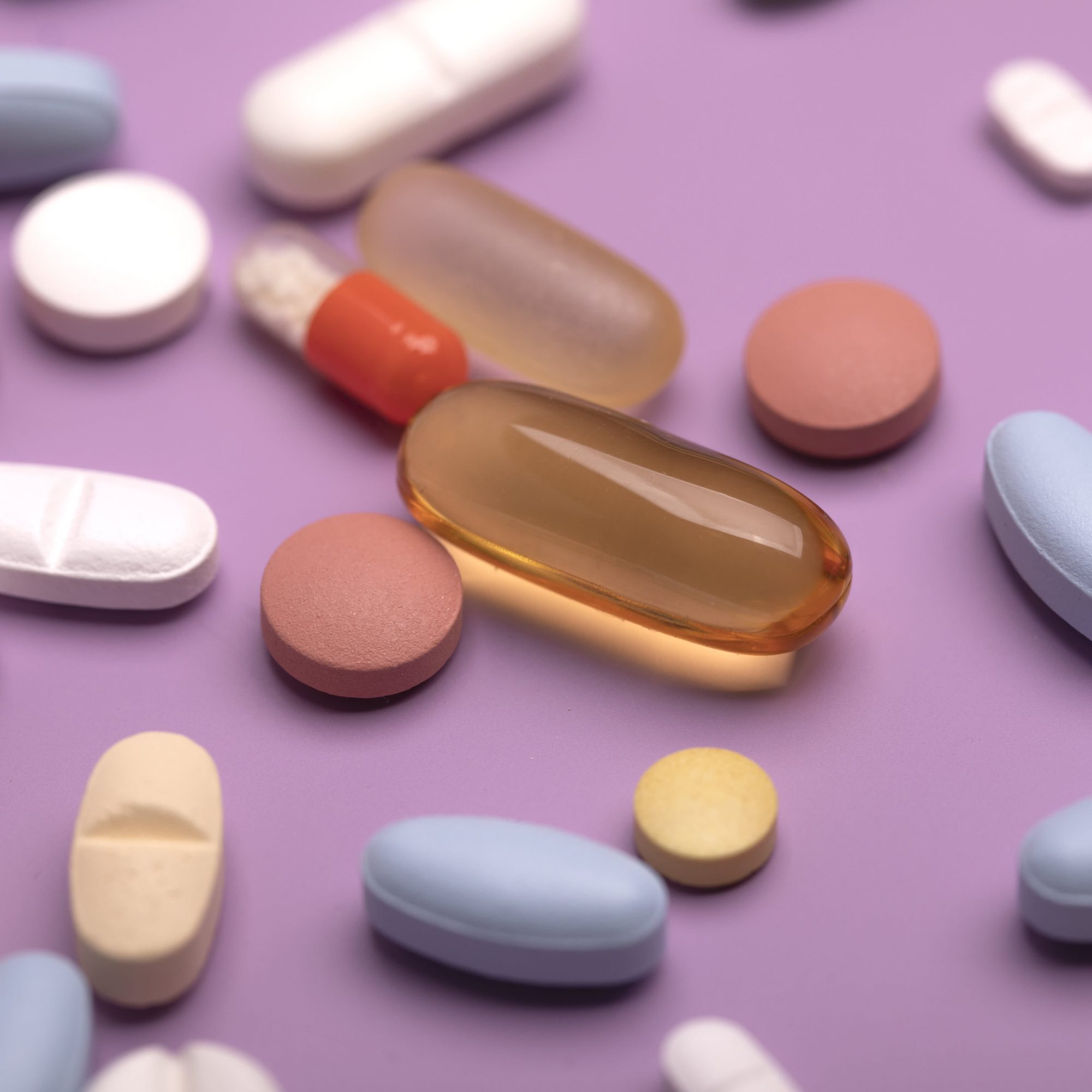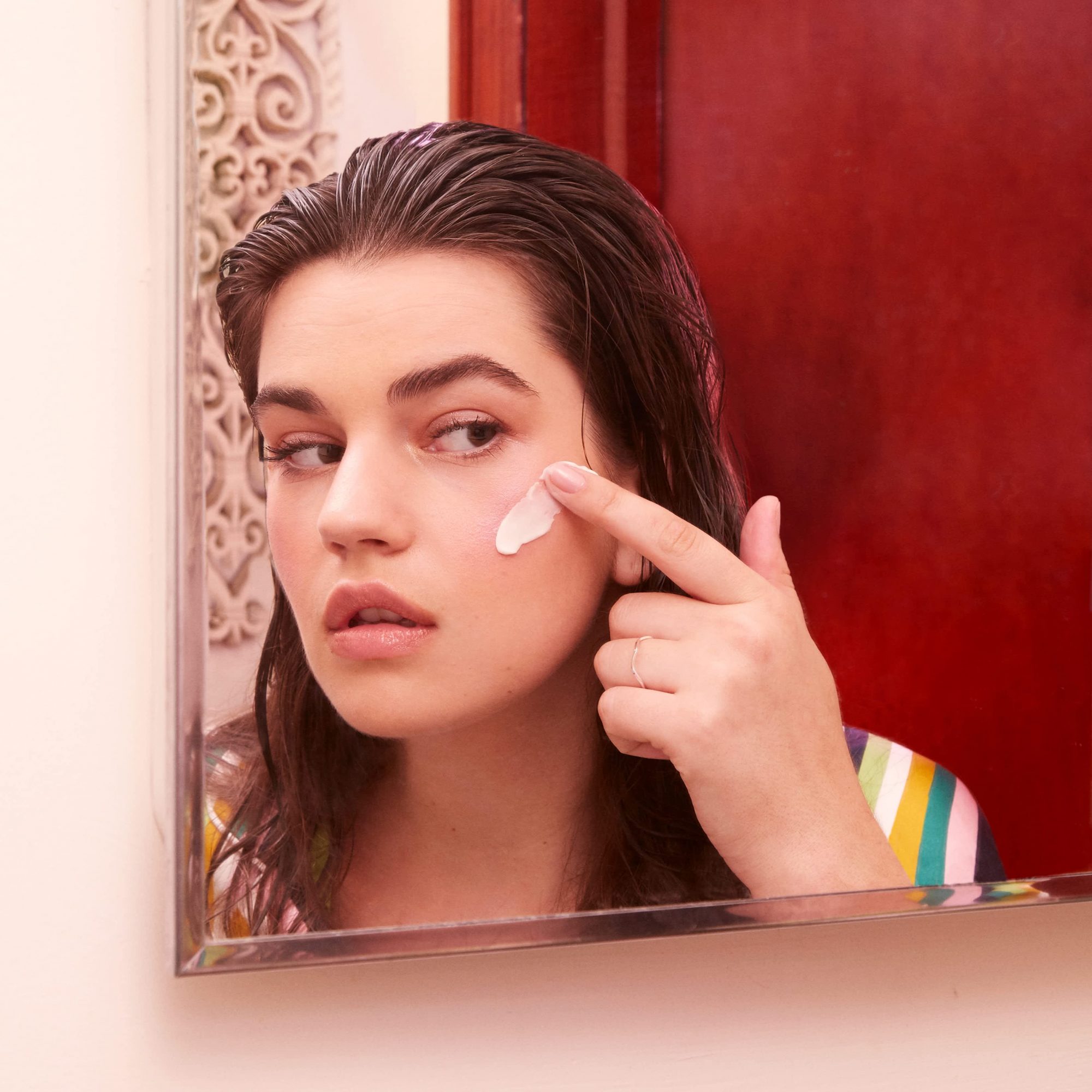
- POPSUGAR Australia
- Beauty
- Do Acne Supplements Work? The Answer Is Complicated
Do Acne Supplements Work? The Answer Is Complicated

An over-the-counter (or nonprescription) pill claiming to “cure” acne sounds too good to be true, doesn’t it? We’re sorry to be the bearer of bad news, but that’s because a lot of the time . . . it is. Skin supplements are big business these days, and the ones promising to clear acne are a segment of the wellness industry that’s only going to grow and appear in our lives (and our Instagram ads) more often.
Despite there being many, many effective treatments out there delivering true results for acne, when it comes to dramatic claims within the supplement industry – which overall has very little scientific research behind it – it’s wise to be cautious. This is especially important if someone is dealing with a skin condition like acne as patients can experience severe psychological impacts and thus look to try whatever products they can find to help the condition.
Acne is one of the most common skin conditions, with the NHS reporting that a staggering 95 percent of people age 11 to 30 are affected to some extent. With the huge number of people experiencing acne in some way, and the blurring of the line between beauty and wellness industries promising us good health and good skin, it’s not surprising that acne-specific supplements are becoming increasingly popular.
Being able to definitively answer the question of whether acne supplements work goes beyond the scope of this article due to lack of scientific evidence; however, with the help of top dermatologists and skin experts, we’re here to help break it down so you can make informed choices and not be sucked into spending hundreds of pounds on products that potentially overpromise and underdeliver.
So, What Are Acne Supplements Anyway?
Supplements are designed to take the guesswork out of making up the nutrients we aren’t getting from our diet. They come in pill, gummy, or powder form, and since the supplement beauty boom, they can be found in all kinds of packaging. Historically, hair, nails, and skin supplements were sold at the drugstore, promising longer hair, stronger nails, and glowier skin from the inside out. Now, acne-specific supplements are coming onto the market with the sole aim of targeting our breakouts – and there’s a lot of brands to choose from. A quick “acne supplements” search on Google will give you some 47 million results, with products spanning from the affordable, medical aesthetic pots of capsules to the luxurious and expensive vanity-worthy jar of pills.
How Are Acne Supplements Regulated?
In the US, supplements are regulated as foods, not drugs, by the Federal Drug Administration. Unfortunately, that means federal law doesn’t require supplements to be proven to be safe nor effective before they are marketed. How a supplement is advertised, including ads broadcast on radio and television, falls under the jurisdiction of the Federal Trade Commission.
This means that although there is regulation to a certain degree, much of the marketing is up to the consumer to decipher. The advice from the government for consumers is simple: “Be wary of hype and headlines. Sound health advice is generally based upon research over time, not a single study.” Still, that’s easier said than done.
What Are the Main Ingredients in Acne Supplements?
According to the experts we spoke to from online dermatology platform Get Harley, ingredients such as indole-3-carbinol, selenium, zinc, magnesium, vitamin B, omega-3, spearmint, and lactobacillus are commonly found in supplements said to target acne specifically. But as board-certified dermatologist Ranella Hirsch, MD, pointed out, “there isn’t a uniform belief that [all of these ingredients] are effective” when it comes to supplements.
Sophie Shotter, a cosmetic doctor and founder of Illuminate Skin Clinic, also noted that oral probiotics for the skin are becoming more and more popular, but again, there is still a long way to go when it comes to any sort of conclusive data being available on the topic. That being said, probiotics are an ingredient being researched more closely – including this 2020 study conducted by Iran University of Medical Sciences – when it comes to their effectiveness in supplements.
On a separate note, Dr. Hirsch cited a 2021 study by researchers at the SUNY Downstate Medical Center in New York looking into a supplement called NicAzel, which contained nicotinamide, azelaic acid, zinc, pyridoxine, copper, and folic acid, in which patients with acne showed improvement after taking it for eight weeks.
So, Do Acne Supplements Work?
All of the experts we spoke to agreed that on their own, acne supplements do not work as a treatment. It has to be a combination of treatments, which include (but are not limited to) a tailored skin-care routine, prescription topical products, oral prescription medication, diet and lifestyle changes, and psychological help. Each treatment plan differs for each person, as there are various types of acne and no two cases are identical.
“As with everything, some supplements will help some people, but due to the volatile nature of acne, we know there is no cure, just different ways to try and manage the condition,” said Debbie Thomas, skin specialist and founder of D. Thomas Clinic.
This isn’t to say supplements don’t work at all. “Some doctors will have patients take supplements, particularly if blood tests reveal some sort of deficiency,” Dr. Hirsch said. Though she also noted that many of these deficiencies can also be remedied through changes in diet.
In Some Cases, Supplements Can Even Make Acne Worse
Unfortunately, for some people, taking excessive supplements can actually worsen their acne rather than help to clear it. “There are supplements that are actually known to cause breakouts, which are not helped by the fact that many of these supplements contain ingredients in multiples of the daily recommended allowances,” Dr. Hirsch said, adding: “These include iodine, whey, B6, B12, and steroids,” noting this study from 2020 conducted by researchers at McGovern Medical School at University of Texas. This is why seeking advice from your GP or dermatologist is so important, that way you don’t run the risk of taking too much or too little of a certain supplement.
To sum up a complex topic into very simplistic terms: acne supplements won’t cure your acne alone, so there’s no reason that, as a consumer, you should feel like you have to spend your hard-earned cash on pills from brands claiming to do such a thing. Having said that, in some cases, supplements can help with skin conditions, including acne, if you’re deficient in certain nutrients. If you think this is the case, visit your doctor (which you should do regardless if your acne is causing you discomfort or distress), who can help guide you through finding the right supplements for you.
The good news is that more studies are being conducted on the effectiveness of supplements in patients with acne to give us a clearer picture of how they can work as a useful additional treatment. At the moment, though, there isn’t enough conclusive evidence proving that acne supplements work. Our advice? Take any product or pill claiming fix-all solutions with a pinch of salt.


